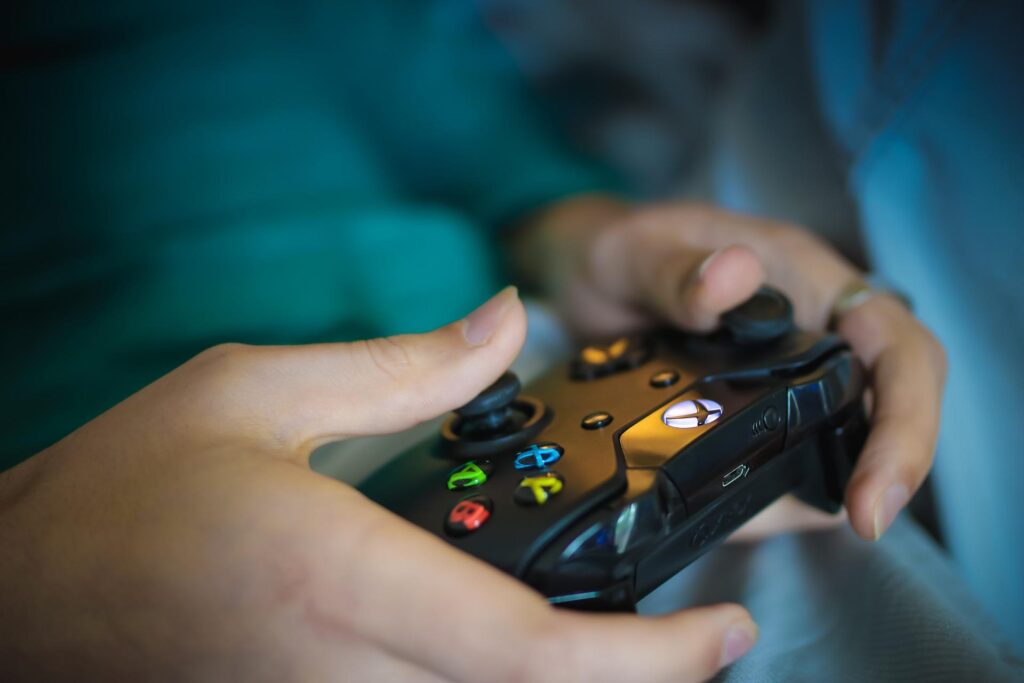Tired of being a noob? I feel your pain. As someone who enjoys competition, I can’t stand the thought of being bad at a game I love. Maybe you think the same way? It’s one thing to love a game, but the experience can be tarnished if we never win… Fortunately, no matter who you are, there’s always hope. We can always improve.
For this, it is above all essential to focus on the basics. The journey from noob to pro won’t be easy or quick. Indeed, to improve, it is above all necessary to show patience and perseverance.
1. Change your attitude
To improve, one of the first things (and probably the most important) is to have a good positive attitude we play.
It sounds like a cliche, but it’s a cliche for a reason. It is obviously possible to improve without having the right attitude, but it will be a much slower and more nerve-wracking process…
But what is the right attitude? It’s hard to define exactly, so let’s define it by first describing the wrong attitude. Below is an example of an attitude that you should not have at all according to Dave Sirlin, a well-known game designer and tournament competitor.
- Blaming others for their mistakes.
- Always find an excuse for poor performance.
- Do not look for mistakes made.
- Never think about how to fix your mistakes.
- Never innovates and never thinks outside the box.
Having this kind of attitude causes a player to lose the game before the game even begins. So to have the right attitude, we must start to successfully remove all the examples seen above in our game mindset.
When we lose, the blame must rest with us. But we shouldn’t blame ourselves. Following a defeat, it is essential and our responsibility to find our mistakes, correct them and learn from them. This is the attitude of a winner.
“I never lose, either I succeed or I learn. »
Nelson Mandela
2. Find a mentor
The teacher-student dynamic is one of the most pervasive relationships in human history. This is something we should never neglect.
The most direct path to improvement is to learn directly from someone else who has already walked that path .
You need a mentor. If possible, find a friend who is genuinely better than you at any game you want to improve on. Ask him to teach you the tricks of the trade.
The ability to ask questions and receive direct answers is crucial to accelerating the development of our skills.
If you can’t find a real mentor, look for one online . This will require you to participate in at least one online community based on the game you want to learn. If you can’t find a personal mentor, you can always ask your questions on a forum and hope for helpful answers.
3. Read and write guides
Perhaps the most obvious way to improve is by reading guidebooks. Guides are often written on community sites and forums, so be sure to scour as many as you can.
But there is a less obvious alternative to reading guidebooks. Write guides. Many people assume that guides should only be written by experts. In a way, it’s true. No one wants to spread false or bad information. It is thus in this case preferable to write an article (or other) on something only when we are certain that it is true.
On the other hand, writing a guide is often the best way to conduct research. Suppose there is a game mechanic that confuses you. Ask yourself, “If I had to find a guide on one topic, what would I want it to cover?” » Once you have an overview, go research each section on your own. Conduct experiments. Keep in mind that one of the best ways to learn is to take the posture of a teacher (particularly part of the Feynman method ).
In an RTS you can test different versions. In an FPS , you can try out new weapon combinations. By writing the guide, you learn . If you’re wrong about something, someone will correct you and you’ll learn even more. As a bonus, once finished, you can publish your guide for the benefit of other newbies.
4. Watch videos and streams
Guides are helpful, but there are many instances where words and pictures are not enough to convey precise meaning. Indeed, it is possible that a 30-second video will prove more useful than a hundred written guides .
If you don’t watch videos or streams, you put yourself at a disadvantage when it comes to learning. Go to TwitchTV and browse the commentary streams. These streams usually involve a single person explaining what they’re doing in-game and why they’re doing it. Look for streams of pro gamers to learn the good stuff.
You can also go to YouTube and find thousands of videos that run the gamut from tutorials, strategies, and more. In particular, I found very good advice that allows me to improve my favorite football game in this way.
5. Playing Beyond Your Capabilities
At the end of the day, we can’t improve if we don’t actually play. More importantly, it is useful to face challenges in order to grow. Playing only on easy mode (for single-player games) and playing against the AI (for multiplayer games) can be great to start with, but we might not improve if we don’t crank up the difficulty level.
The most important tip for improvement is to play against better opponents.
However, we do become obsessed with it. If we start learning how to play tennis, we won’t learn anything by immediately facing Roger Federer…
That’s why it’s best to go step by step. It should start by slightly increasing the difficulty as we accumulate more experience and skill on a game. This forces us to step out of our comfort zone and begin to incorporate new difficult but possible tactics.
“The greatest glory is not never to fall, but to get up every time you fall. ”
Confucius
To conclude…
To improve, we have to get out of our comfort zone and be willing to lose. Defeat must become a source of learning. We must then examine our failures to identify our weaknesses in order to correct them . By correcting our failures, we can quickly improve. This then allows you to go from an amateur player to an expert.











6 thoughts on “How to improve your performance in video games?”